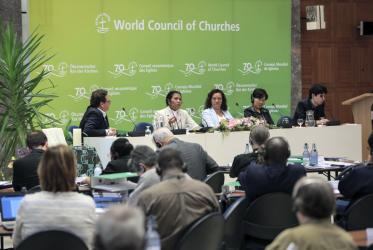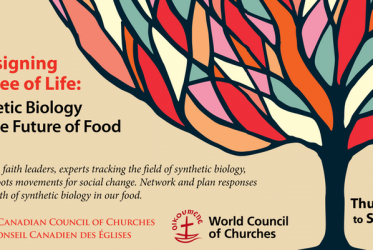Displaying 81 - 100 of 137
19 October 2018
WCC invites Churches’ Week of Action on Food 2018
11 October 2018
WCC promotes Global Day of Prayer to End Famine
06 June 2018
WCC calls for Global Day of Prayer to End Famine
31 May 2018
Day of prayer and fasting for peace in South Sudan, Democratic Republic of Congo
23 February 2018
Worldwide
Re-engineering life forms: Church forum raises concerns
09 November 2017
Responsible agriculture investments theme of WCC session
16 October 2017
Forum strengthens ecumenical commitment to diakonia
12 October 2017
Redesigning the Tree of Life: Synthetic Biology and the Future of Food
02 - 04 November 2017
Toronto, Canada















